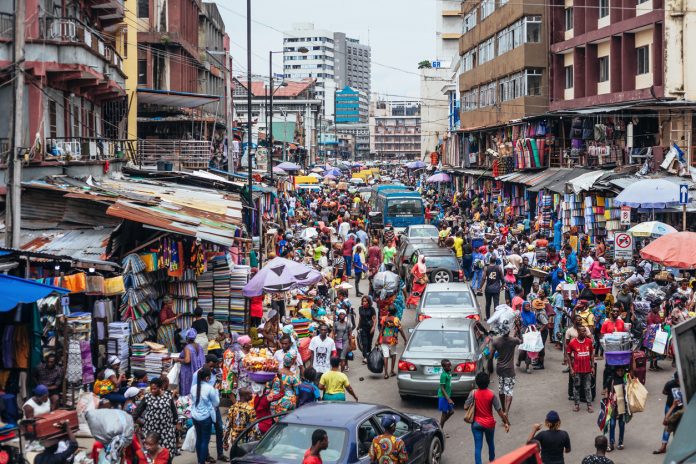Thomas Beloe, Director of UNDP’s Sustainable Finance Hub, explains how UNDP helps emerging economies thrive when it comes to making finance work for development
While parts of the global financial system prioritize shareholder profits over broader societal and environmental goals, we’re witnessing an encouraging shift toward more sustainable and inclusive approaches. Developing countries increasingly take the lead in charting their financial futures rather than waiting for global systems to reform. This proactive stance, combined with innovative partnerships, presents a significant opportunity to reshape finance in service of people and the planet.
Emerging economies are assertively working toward financial independence and sovereignty, creating homegrown solutions aligned with national priorities and development needs. Working across more than 170 countries and territories, UNDP supports these country-led efforts by creating innovative financing tools and partnerships that make investing in emerging markets less risky and more impactful for sustainable, inclusive growth.
The United Nations’ 17 Sustainable Development Goals (SDGs), adopted in 2015, offer a comprehensive roadmap to end poverty, protect our planet, and ensure prosperity for all by 2030. Yet only 17% of SDG targets are currently on track, with a staggering $4.2 trillion financing gap standing in the way of progress. This financing gap isn’t just a number on a page – it means real hardships for communities facing poverty, climate disasters, and lack of access to essential services.
This challenge is particularly striking when considering the contrast between global wealth, now estimated at over $430 trillion, and SDG financing needs. Even a tiny fraction of this wealth could fully fund all 17 SDGs and transform millions of lives.
Official development assistance (ODA) – foreign aid from wealthy nations to developing countries – plays a crucial catalytic role in a larger financial architecture. While traditional ODA represents a relatively small portion of development finance flows, its strategic deployment can unlock and redirect much larger pools of public and private capital toward sustainable development. Improving how development cooperation functions within the broader financial ecosystem is essential for countries to achieve their development goals and transition to more sustainable and inclusive economic models.
Building financial strength from within
Countries that streamline their budgets, align spending with national development goals, and improve oversight can deliver better services, respond to citizens’ needs, and rebuild trust in institutions. At the heart of UNDP’s work is supporting governments in more than 85 countries in developing integrated national financing frameworks that align with the SDGs and local development priorities.
These frameworks help governments strengthen tax collection and ensure public funds advance national development plans that benefit all citizens. A prime example is Tax Inspectors Without Borders, a joint initiative by the Organisation for Economic Cooperation and Development (OECD) and UNDP that improves countries’ ability to conduct tax audits, reduce tax evasion, and build confidence in fiscal institutions. This program has already helped developing countries collect an additional $2.4 billion in tax revenue – funds that can be directed toward critical development needs from healthcare to education to infrastructure.
Making investment safer in growing economies
One major barrier to development is perceived risk. By creating innovative risk-reduction mechanisms, UNDP helps emerging economies attract private investment to vital sectors previously seen as too risky, from agriculture and clean energy to small business development and climate adaptation.
Ethiopia showcases this approach in action. As the country recovers from political challenges, UNDP has built a groundbreaking partnership focused on Ethiopia’s primary export – Arabica coffee. As Arabica’s birthplace and Africa’s largest coffee producer (500,000 tons annually), Ethiopia’s coffee sector relies on small-scale farmers who preserve traditional farming methods that have sustained communities for generations.
Working with the Italian development bank Cassa Depositi e Prestiti, Generali Insurance and Lavazza, UNDP provides insurance tools, financing, and technical support that reduce risk throughout Ethiopia’s coffee value chain. This partnership has the potential to unlock millions in new investments while helping small-scale coffee farmers maintain sustainable practices, withstand climate impacts, and access premium global markets that value their products. It exemplifies how financial innovation can protect both livelihoods and cultural heritage while driving economic growth.
Empowering countries to lead their own development
This new approach puts emerging economies in charge, with international partners providing expertise, risk management, and supportive policies for SDG-aligned investments rather than imposing external solutions. It recognizes that sustainable development must be locally owned and driven to succeed.
On June 30, key stakeholders from across the development and financial landscape will gather in Seville for the Fourth International Conference on Financing for Development (FFD4), a once-in-a-decade opportunity to align global finance with national strategies that channel both public and private investment toward the SDGs. This summit represents a crucial moment to reimagine how financial systems can work for people and the planet.
As we prepare for this landmark event, UNDP is working to bridge traditional divides between finance and development, fostering partnerships like our Ethiopia initiative that deliver returns for investors while advancing the SDGs. These partnerships demonstrate that properly structured financial and social returns can go hand in hand.
The FFD4 process represents a decisive shift from top-down approaches, enabling developing nations to chart their own paths through better domestic resource management and strategic de-risking of private investment. Together, we are building a sustainable finance architecture that can deliver more equitable prosperity throughout the 21st century – one that brings the power of global finance to bear on our most pressing shared challenges.











